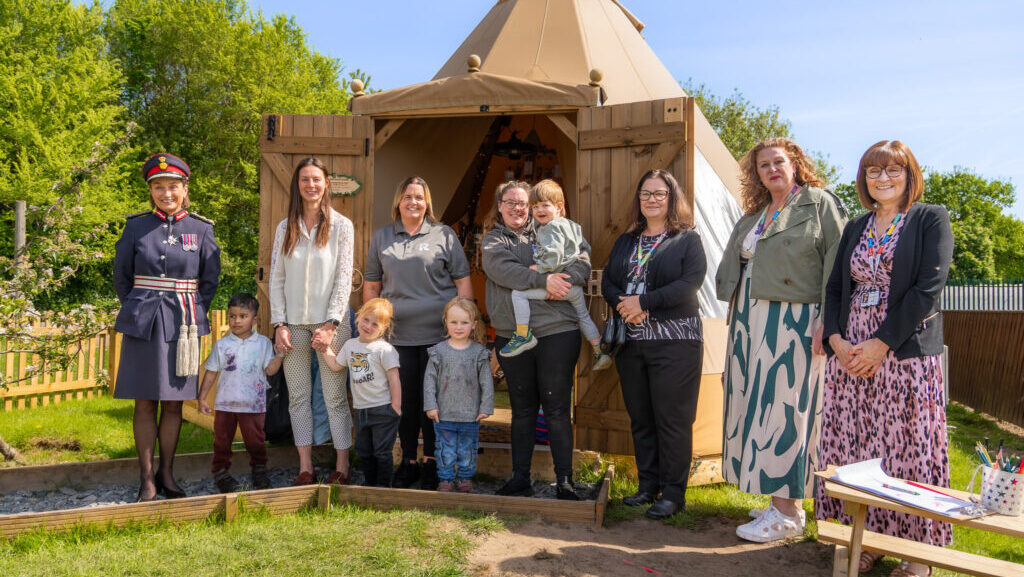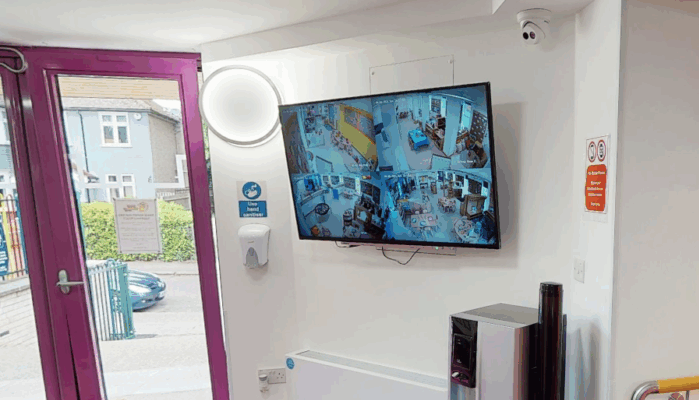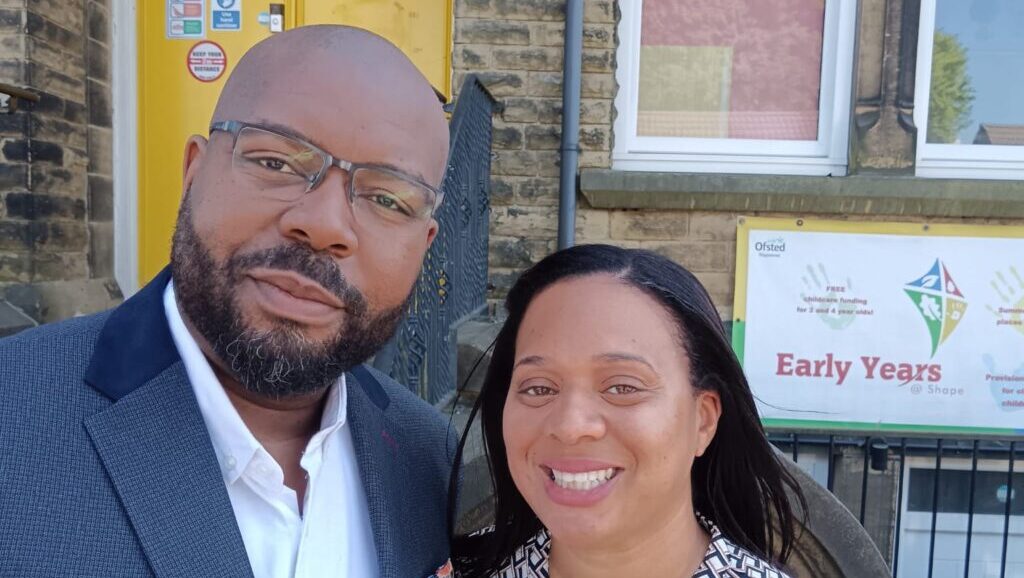Mandy Guttadauro, operations director at Bright Little Stars Nurseries, explains how CCTV and ParentCam supports the company’s settings
Expansion under way
The government has invested £100 million in supporting nurseries to expand capacity before the rollout of funded places for nine-month-olds starts in September. Charlotte Goddard finds out how three childcare companies are using the money.

Nurseries across the country are echoing to the sound of hammers and drills as settings expand to meet demand driven by the rollout of funded places to children from the age of nine months. From tipis in the garden to a staff lodge in the car park, nurseries are using the government’s Childcare Expansion Capital Grant in creative ways.
The Childcare Expansion Capital Grant comprised £100 million of capital funding in 2023-24, which was allocated to local authorities based on likely take up of the expanded 30 hours offer in the area and the amount of wraparound care offered by schools. Funding was open to private, voluntary and independent sector nurseries, schools and childminders.
The government left it up to individual local authorities to decide on the exact criteria for distributing the funding, but strongly encouraged them to focus on projects that would increase the physical capacity of the early years sector and wraparound provision. Funding was open to private, voluntary and independent sector nurseries, schools and childminders.
As local authorities were allowed to decide their own criteria, nursery groups with settings in different areas found the application process for capital funding varied from region to region. Rosedene Nurseries, which will soon have 12 nurseries in Teesside and North Yorkshire, obtained five grants from four different local authorities.
“We had different timelines and different criteria for each local authority,” says Rosedene managing director Alice Haslam. “One local authority had a very rigorous process, and we had to get three separate quotes for each big spend – for example, a quote from three different joiners. However, other local authorities were more relaxed, and just asked what we would spend the money on, how many additional places that would create, and to show we had the resources to deliver the project in the stated time frame.”
Local authorities also differ in their approach to what the funding can be used for. “The capital grant cannot be used to fund any lease or buy a property, it has to be on building and infrastructure,” says Haslam. “Having said that, some councils would let you use up to £2,000 for resources for the nursery, but others have said you can’t use any of the funding for nursery equipment.”
Altogether Rosedene has received around £200,000 in capital funding, and has created almost 190 extra spaces. The group used the majority of the money to transform two empty rental properties into new nurseries, in Redcar and Cleveland in North Yorkshire, both of which will open in September.
The other three grants were used to increase capacity at existing settings. “Those nurseries were at maximum capacity so the funding has been very useful and needed. Like many nurseries we didn’t have a lot of space to expand, so we had to look at unused rooms and at outdoor space which we could utilise,” says Haslam. One setting had a vacant space at the end of the building, which has become a room for babies under the age of one.
In two other nurseries, Rosedene has invested in outdoor tipis, which created an extra 15 places in each setting without the need for building work. The tipis feature zones including a quiet reading nook, a wellbeing space for mindfulness and yoga, areas for forest school-inspired activities, and creative play corners.
“The tipis have been absolutely game-changing, they are such unique spaces,” says Haslam. “The children love them, the parents love them, and we also use them for staff meetings and team building.”
In Rosedene’s case, the capital funding has created spaces which were not previously available. “We have been looking to grow as a group anyway, but this definitely accelerated our decision and gave us the capital that we needed to invest, without having to go elsewhere,” says Haslam. “Would we be opening two nurseries in September if it wasn’t for this? No, absolutely not.”
Hannah Hurley is the owner and manager of Rooftops, a single setting nursery in Richmond, North Yorkshire. “We are the only private day nursery in Richmond and we have had a waiting list for two years now,” she says. “I spoke to the local authority about this and they suggested I apply for the capital grant.”
Hurley found the whole application process to be relatively simple. “We needed to tell them our profit and loss for three years, our occupancy, policies and practices, staffing levels, and whether we would be able to recruit enough staff to cover the extra children,” she says. Rooftops received £50,000 in funding, and decided to create a ‘tweenies’ room for children from the age of 18 months to two-years-old.
Currently the setting has a baby room which is for all children up to the age of two. “There’s a big difference between babies and toddlers; they are walking, they need access to the garden, so it will be fantastic to have them in their own room from September,” says Hurley. The expansion will see capacity increase from 42 to 55 places.
In order to free up space for the tweenies room, Rooftops is constructing a new staff lodge in the car park, losing two parking spaces in the process. “We are also knocking down a wall in the pre-school room to let in more light,” says Hurley.
Hurley did not consider opening a new setting with the funding, rather than expanding her existing nursery. “The one we have I know so well,” she says. “I had current parents wanting additional hours now or in September, and previously we couldn’t offer them that, but now we can.”
Hurley is no stranger to building work, so she didn’t find it difficult to organise the renovation. “My husband is an architect, he has lots of contacts the sector,” she laughs. “My Dad was a builder, and I had an interior design business for a while, so this is the ideal project for me.” Hurley has previously overseen a barn conversion on the nursery site, to expand capacity when the two-year-old funding was introduced. MP for Richmond and Northallerton (and former Prime Minister) Rishi Sunak has been taking an interest in the proceedings, visiting the setting in June to hear about the changes.

Unusually, Jennifer Lewis, owner of two settings in East London, decided to use the capital funding to reduce rather than expand the number of rooms in her Custom House nursery, Clever Cloggs. She received £40,000 from the fund, and set about turning three small rooms into two larger ones, as well as revamping the garden area.
The move has enabled Lewis to provide more places for babies, which she thinks will better meet the needs of the area. There has been a growth in affordable housing, with more families moving into the area, but pre-school children are increasingly moving into school-based provision. “We looked at what was going on in the local area to determine what we needed, before applying for the first round of funding,” says Lewis. “A lot of funded children go to school at the age of three and a half around here so it makes more sense to expand provision for under-twos, especially with the 30 hours entitlement rolling out to babies in September. We didn’t want to do an extension because we would have lost garden space, and because it would require planning permission, so we decided to reconfigure our internal space.”

Builders have taken down an internal wall and a window, and created two larger spaces, one for under-twos and one for two and over. The baby room now includes a home corner, construction area and other activities. They have also transformed the garden area. “It is important for us to have a garden, because many of the children live in flats with very small gardens, if there is a garden at all,” says Lewis.
One unexpected benefit to the building work has been the fascination shown by the children. “When the builders took up the turf in the garden, digging it up in squares, the children sat open-mouthed in the doorway like it was a television,” says Lewis. “It was nice that they could see the changes as they happened.”
Latest Features
Deena Billings, European quality director and safeguarding lead at Busy Bees, offers an insight into how the UK’s largest nursery…
Charlotte Goddard speaks to nursery owners who have diversified outside their core business. Marcus and Zoe Davy, founders, Shape Nurture…




